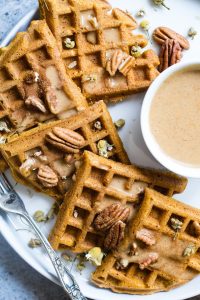
A major study of French individuals published today in The BMJ reveals a possible direct link between greater intake of artificial sweeteners and an increased risk of cardiovascular illness, including heart attack and stroke.
The findings indicate that these food additives, which are consumed every day by millions of people and are found in hundreds of foods and beverages, should not be regarded as a healthy and safe substitute for sugar, in accordance with the existing position of various health agencies.
As zero- or low-calorie substitutes for sugar, artificial sweeteners are commonly utilized. They constitute a $7.2 billion (£5900m; €7000m) global market and can be found in hundreds of items around the world, especially ultra-processed foods such as artificially sweetened drinks, some snacks, and low-calorie ready meals.
Several studies have connected the consumption of artificial sweeteners or artificially sweetened drinks (ASB) to weight gain, high blood pressure, and inflammation, but the function of artificial sweeteners in the development of certain diseases, such as cardiovascular disease, remains unclear (CVD). In addition, a number of observational studies have assessed ASB use as a surrogate for CVD risk, but none have measured overall artificial sweetener intake.
A team of researchers from the French National Institute of Health and Medical Research (Inserm) and colleagues utilised data from 103,388 participants (average age 42 years; 80% female) of the web-based NutriNet-Santé study, which was launched in France in 2009 to investigate the relationship between nutrition and health.
Food intakes and consumption of artificial sweeteners were evaluated using repeated 24-hour dietary records, together with a variety of potentially significant health, lifestyle, and sociodemographic characteristics.
The analysis covered artificial sweeteners from all dietary sources (drinks, tabletop sweeteners, dairy products, etc.) and by kind (aspartame, acesulfame potassium, and sucralose).
37% of participants consumed artificial sweeteners, consuming an average of 42.46 mg/day, which is about equivalent to one packet of tabletop sweetener or 100 mL of diet soda.
Participants who drank artificial sweeteners had mean daily intakes of 7.46 mg and 77.62 mg, respectively, in the lower and higher consumer categories.
Higher users tended to be younger, have a higher body mass index, smoke more frequently, be less physically active, and adhere to a weight loss plan. In addition, they consumed less total energy, alcohol, saturated and polyunsaturated fats, fiber, carbohydrates, fruits, and vegetables, while consuming more sodium, red, and processed meat, dairy products, and sugar-free beverages. Nonetheless, the researchers accounted for these distinctions in their analysis.
During an average of nine years of follow-up, there were 1,502 cardiovascular incidents. These conditions included heart attack, angina, angioplasty (a treatment to widen blocked or restricted coronary arteries), transient ischemic attack, and stroke.
Total use of artificial sweeteners was found to be connected with an elevated risk of cardiovascular disease (absolute rate 346 per 100,000 person-years in higher consumers and 314 per 100,000 person-years in non-consumers).
Artificial sweeteners were more strongly related with increased risk of cerebrovascular disease (absolute rates 195 and 150 per 100,000 person-years in higher and non-consumers, respectively).
Aspartame consumption was associated with an increased risk of cerebrovascular events (186 and 151 per 100,000 person-years, respectively, in higher and non-consumers), but acesulfame potassium and sucralose consumption was associated with an increased risk of coronary heart disease (acesulfame potassium: 167 and 164 per 100,000 person-years; sucralose: 271 and 161 per 100,000 person-years in higher and non-consumers, respectively).
This is an observational study, therefore it cannot establish cause, nor can the researchers rule out the potential that other unidentified (confounding) factors influenced their findings.
Nonetheless, this was a big study that analyzed individuals’ intake of artificial sweeteners using accurate, high-quality dietary data, and the findings are consistent with those of other studies that correlate exposure to artificial sweeteners with a variety of health indicators.
As a result, the researchers conclude that replacing artificial sweeteners with added sugar has no effect on CVD outcomes.
They emphasize that additional prospective cohort studies and experimental research are required to corroborate these results and clarify biological processes.
Currently, the European Food Safety Authority, the World Health Organization, and other health organizations are undergoing a reevaluation of artificial sweeteners, and they believe this study provides vital insights into this context.
Artificial sweeteners may not be safe sugar alternatives: study
More information: Artificial sweeteners and risk of cardiovascular diseases: results from the prospective NutriNet-Santé cohort, The BMJ (2022). DOI: 10.1136/bmj-2022-071204
